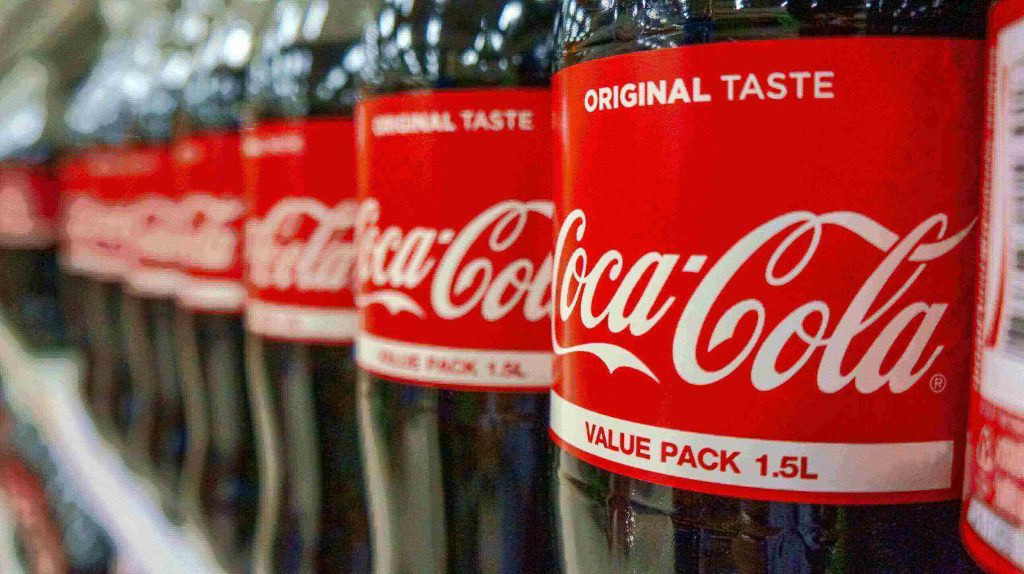Coca-Cola has warned that tariffs on steel and aluminum introduced by Donald Trump could force it to rely more on plastic packaging in the U.S. The company stated that a rise in aluminum prices may make canned beverages more expensive, pushing it to shift towards plastic bottles to keep costs manageable.
The warning follows Trump’s recent announcement of 25% tariffs on imported steel and aluminum. The policy could raise production costs for beverage companies and manufacturers that rely on metal packaging. Coca-Cola’s chief executive, James Quincey, addressed the issue during an earnings call, stating that the company is looking at alternative packaging solutions to offset increased costs.
Impact of Tariffs on Coca-Cola’s Packaging Strategy
James Quincey explained that aluminum for Coca-Cola’s cans is primarily sourced from Canada. The newly imposed tariffs could increase expenses, affecting the affordability of canned beverages for both the company and consumers. He emphasized that if aluminum can prices rise significantly, Coca-Cola might shift more products to plastic bottles.
“If aluminum cans become more expensive, we can put more emphasis on PET [plastic] bottles,” Quincey told investors. He also mentioned that Coca-Cola has other packaging strategies to maintain affordability for consumers.
However, Quincey downplayed the overall impact, noting that packaging costs are just one part of the company’s total expenses. “The increase in aluminum prices is not insignificant, but it’s also not going to radically change a multibillion-dollar U.S. business,” he added.
Trump’s Tariffs and Their Broader Implications
Trump had previously imposed similar tariffs on foreign steel and aluminum during his first term in 2018. However, many beverage companies managed to obtain exemptions. This time, Trump has declared that there will be no exceptions, making the tariffs stricter than before.
The move has raised concerns among businesses that rely on imported metals. The beverage and food industry, in particular, is expected to face higher production costs, which could lead to price increases for consumers. Some industry experts argue that companies might pass these added costs onto buyers, making canned drinks more expensive in the future.
Coca-Cola’s Sustainability Goals and Plastic Concerns
Coca-Cola has been under scrutiny for its use of plastic. Environmental groups have repeatedly ranked the company among the top plastic polluters worldwide. The company has been trying to reduce its reliance on plastic, increasing the use of aluminum cans as part of its sustainability efforts.
Despite these efforts, Coca-Cola’s latest environmental report shows that 47.7% of its beverages were sold in plastic bottles in 2023. Meanwhile, only 26% were sold in aluminum or steel containers. The company has made progress in reducing plastic use, but a shift back towards plastic due to tariffs could be seen as a setback.
Several environmental organizations have expressed concerns about the possibility of Coca-Cola increasing plastic production. They warn that switching from aluminum to plastic could lead to more waste, further harming marine ecosystems and increasing pollution levels.
Trump’s Executive Order on Plastic Straws
In a separate decision, Trump signed an executive order reinstating the use of plastic drinking straws. This move reverses a previous federal policy that aimed to phase out single-use plastics, including plastic straws, in favor of more environmentally friendly alternatives.
The decision has drawn criticism from environmental activists, who argue that single-use plastics contribute to pollution and climate change. Supporters of the move, however, claim that paper straws are unpopular with consumers and ineffective compared to plastic ones.
The Future of Coca-Cola’s Packaging in the U.S.
With the new tariffs in place, beverage companies like Coca-Cola will have to decide whether to absorb the higher aluminum costs, pass them on to consumers, or shift towards alternative packaging like plastic. This situation could also affect other industries that rely on canned packaging, such as food manufacturers.
It remains to be seen how Coca-Cola will adapt to these new economic challenges. If the company increases plastic use, it may face criticism from environmental groups while trying to maintain affordability for consumers. At the same time, the higher costs of aluminum could push the company to explore new, sustainable packaging solutions.
For more updates on business and global consumer market, stay tuned with Coleman News.


